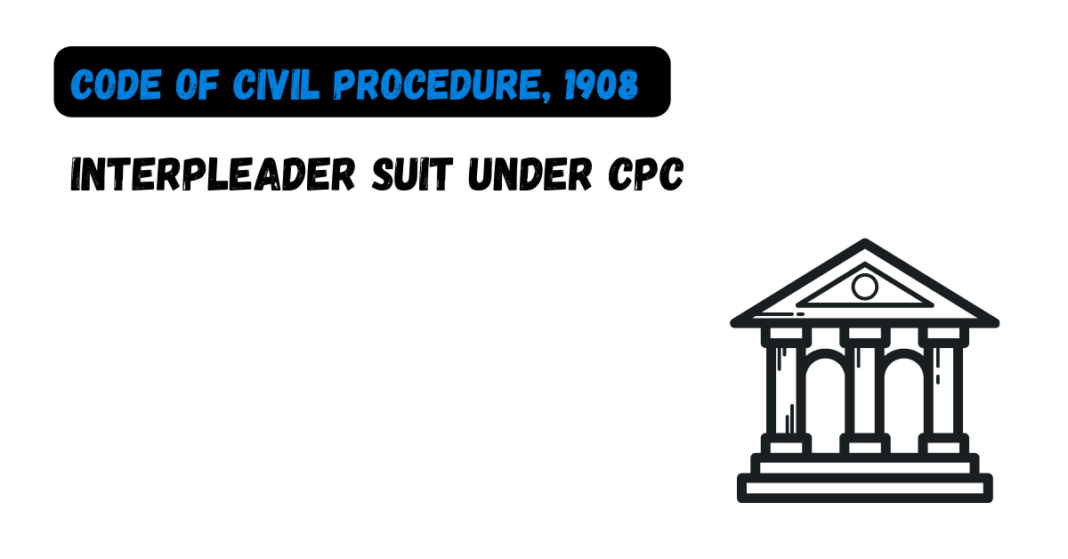“Interpleader suits” refer to a specific type of lawsuit that allows a third party to resolve a dispute between two or more claimants who are making competing claims to the same property or funds.
Nature of Interpleader Suits
- Conflicting Claims: Interpleader suits arise when a third party (known as the stakeholder) holds property or funds that are subject to competing claims by multiple parties (known as the claimants).
- Stakeholder’s Dilemma: The stakeholder may find themselves caught in the middle of the dispute, unsure of whom the property or funds rightfully belong to. The purpose of an interpleader suit is to allow the stakeholder to deposit the disputed property or funds with the court and request the court’s assistance in determining the rightful claimant.
Filing an Interpleader Suit
- Application by Stakeholder: The stakeholder initiates the interpleader suit by filing an application with the court, seeking permission to deposit the disputed property or funds with the court and requesting the court to resolve the conflicting claims.
- Disclosure of Facts: The stakeholder must disclose the relevant facts of the dispute, including the identities of the claimants, the nature of the dispute, and the details of the property or funds involved.
- Deposit of Property or Funds: Upon filing the application, the stakeholder typically deposits the disputed property or funds with the court, effectively removing themselves from the dispute.
Court Proceedings
- Notice to Claimants: The court issues notices to all the claimants, informing them of the interpleader suit and providing an opportunity for them to present their claims.
- Claims and Counterclaims: The claimants are required to file their respective claims or counterclaims, setting out their legal arguments and evidence supporting their entitlement to the disputed property or funds.
- Determination of Rightful Claimant: The court examines the evidence presented by the claimants and other relevant factors to determine the rightful claimant. The court’s decision is typically based on the principles of law governing ownership or entitlement to the property or funds in question.
- Disbursement of Property or Funds: Once the court determines the rightful claimant, it orders the disbursement of the property or funds to the successful claimant, resolving the dispute.
The purpose of interpleader suits is to protect the stakeholder from potential liability arising from the conflicting claims and to provide an efficient resolution to the dispute by involving the court’s intervention. It allows the claimants to present their case in a single proceeding and eliminates the risk of multiple lawsuits over the same property or funds.





